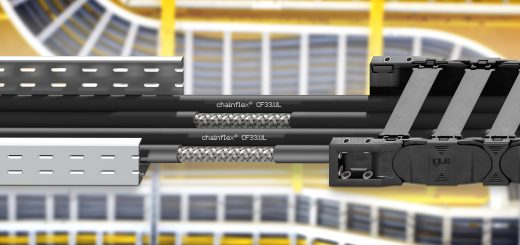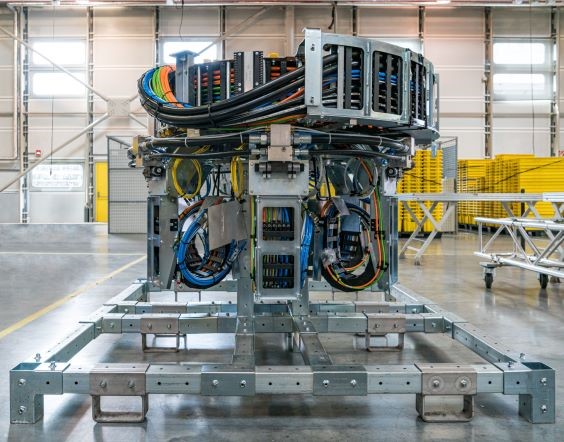Vertical instead of horizontal: how motion plastics make agriculture sustainable
Self-lubricating tribo-polymers ensure the reliable operation of vertical farming systems
February 6, 2020 – igus plays a major role in the cost-efficient and reliable operation of products used in vertical farming, which is a rapidly growing and promising alternative to conventional methods to produce food for the fast-growing world population.
Self-lubricating tribo-polymers from igus, the manufacturer of motion plastics, are helping vertical farmers meet the challenges of their growing market. igus, based in Germany, runs its North American operations out of Providence, R.I.
With a world population of 7.8 billion, food production has become a challenge that will intensify. The United Nations expects the global population to reach 8 billion by 2023, and 10 billion by 2057. More than half of the world’s population lives in cities and metropolitan regions. Because agricultural space is scarce, food must be transported to urban areas from distant regions.
Vertical farming is a growing solution. Different levels in enclosed buildings are used for food production, which reduces production and transportation costs and lowers CO2 emissions. The vertical arrangement utilizes small spaces in urban areas to generate the greatest possible agricultural yield from a small surface area.
High-performance polymers display their strengths
Machinery used in vertical farming works in a highly sensitive environment. The motion plastics from igus are ideal for use in this type of food production. This ensures freedom from maintenance and trouble-free operation within a vertical farm.
Due to the self-lubricating feature, FDA compliance and highest hygiene standards, plants, vegetables, salad and fruit are not contaminated. In addition, the tribo-polymers are corrosion-free and low-maintenance as well as resistant to dirt, dust and soil.
There is also great potential in the concepts of autonomously operating, fully automated vertical farms. Low-cost automation systems enable cost-effective vertical planting, harvesting or packaging throughout the year, along with a quick return on investment.
Vertical farming is no longer a dream of the future
Living Greens Farm, based in Minnesota, is exemplary for its vertical farms. The company converts vacant skyscrapers into vertically arranged farms. These cultivation techniques require special machinery for nutrient supply and irrigation of the plants. A patented traverse system equipped with igus e-chains carries enriched water directly to the plant roots.
In an empty warehouse in Minneapolis, about 4,000 square meters of space is used to yield the same quantity of food produced from more than 100 acres of conventional agriculture.
Intelligent Growth Solutions (IGS), which is located in Scotland, also uses igus motion plastics for automation in vertical farming. One of the goals of the company, Growth Towers, is to make vertical farming more economical by improving productivity, yield, quality and consistency and by drastically reducing electricity and labor costs.
The vertically arranged IGS systems must be reliable, yet low-friction and easy to maintain. The drylin linear guide systems from igus meet all requirements and ensure trouble-free operation of the system. A year after installation of the lubrication-free components, no noticeable wear of the bearing shell could be detected at inspection. Products from igus have been used in agricultural equipment for decades, and with the growth of vertical farming, its products can help provide a solution for an international dilemma.



